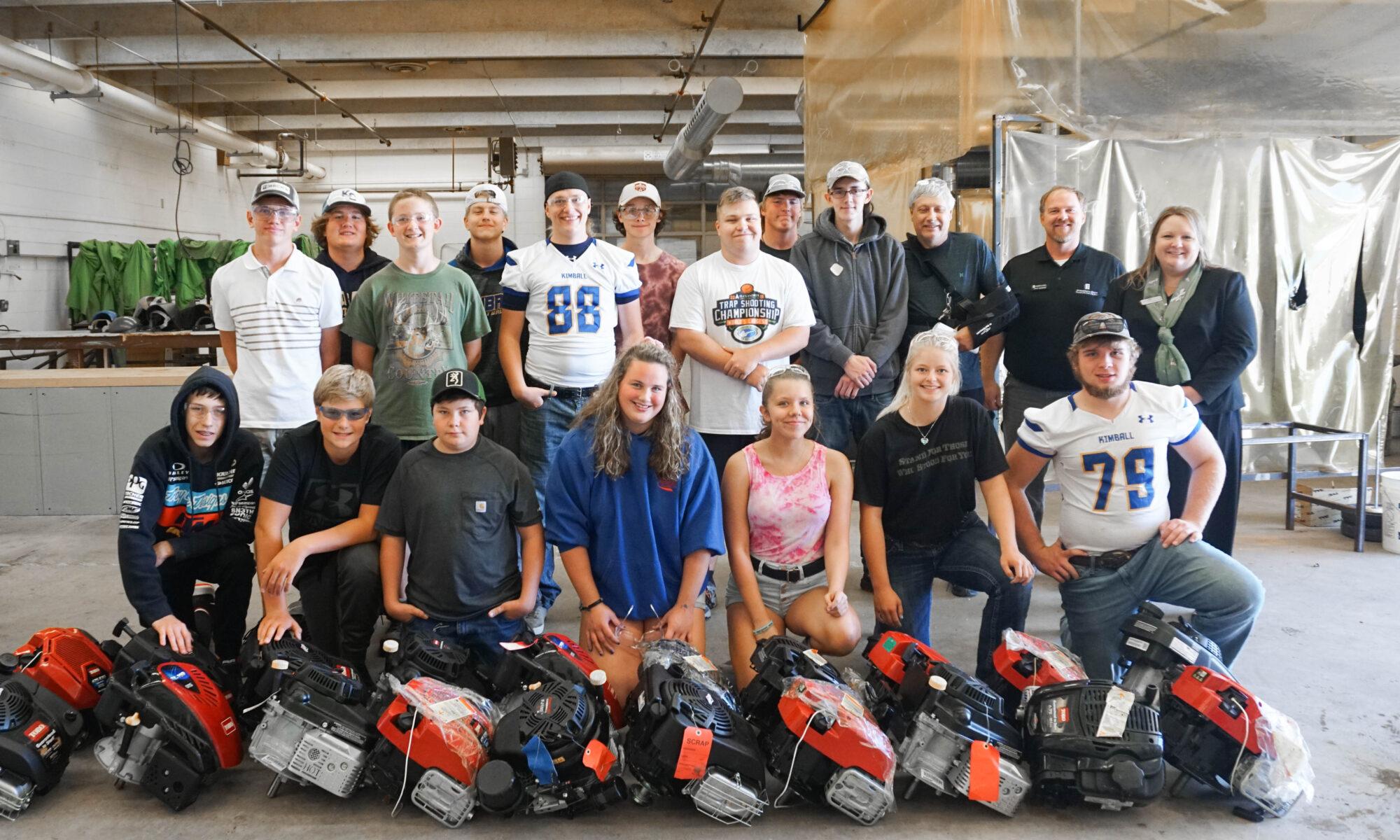October 17, 2019
A High Impact, High Return-On-Investment Partnership
A few old adages come to mind when thinking of how to describe the Toro and the Minnesota State Transportation Center of Excellence (TCOE) partnership. Here are a few:
- A pictures is worth a thousand words.
- It’s not what you know, but who you know.
- You gotta spend money, to make money.
And arguably this quote describes it the very best,
Alone we can do so little; together we can do so much.
Helen Keller
Since June, through a partnership with the Toro Company, assistance from Minnesota State college partners, and collaboration with AgCentric, the TCOE has donated 119 small gas engines to high school small gas engine and automotive programs across the state. From Park Rapids to Mankato to St. Paul, the former Toro test engines are being put to work (literally and figuratively) in both existing programs, as well as several brand new programs being offered to students for the first time. The Toro Company would have otherwise recycled the engines, which have been tested in their developmental facility in Bloomington, but instead are being donated to the TCOE with the goal of distribution to schools who can use them to benefit students.

Although the simple, and literal, handing off of engines to high school programs would be helpful enough, it doesn’t fully exploit all the potential benefits to teachers and students. Instead, the biggest goal is to create connections that will hopefully benefit students for years to come. So, the process usually involves the identification of who needs engines. Partners like Judy Barka, Assistant Director of AgCentric (Northern Agriculture Center of Excellence) help us identify schools with a need for the engines. As most people know, our Minnesota high schools often have small gas engine courses being taught by Ag teachers. That partnership facilitated exciting engine donations to high schools that are offering first-time-ever small gas engine programs in Park Rapids and Pillager. Other connections are made through word-of-mouth, or students at career fairs, which is how we found out that tech Dave Evans at Mankato East High School was interested (see picture). In talking with Mr. Evans, we realized that he has some very serious ideas about how he could make his program better, and offer more automotive-specific education to his students. So when it came time to deliver the engines Jim Brady, automotive instructor at South Central College (Mankato) graciously agreed to help with the delivery. This led to a lengthy discussion of curriculum ideas and future collaboration opportunities with Dave Evans. It was exciting to watch these two professionals talk about how they could help each other, and what that help could do to provide a better education and more opportunities for students. This is what it’s all about – partnerships making a significant and meaningful impact on multiple levels.

Thankfully, the Minnesota State system continues to support the efforts of the Transportation Center of Excellence. We believe the return-on-investment of these types of activities is some of the highest of anything we do. From an outreach perspective, we don’t just seek to make students aware of college programs. We seek out opportunities to make a measurable difference for students, educators, and industry immediately.
It’s a picture worth a thousand words – a great example of how the TCOE is embracing our new vision statement. “Engaging Industry. Enhancing Education. Inspiring Students.” By engaging our partnership with Toro we are enhancing college/high school educator connections and in turn are providing students with quality resources to work on that will hopefully inspire them to consider careers in the transportation industry. This is a meaningful example of how to do outreach in an impactful way. We believe our intentional approach to outreach, through collaboration with partners, and a commitment of resources by the Minnesota State College and University system, can result in long-lasting positive impacts all levels of education and industry. We are thankful to be part of things like this.


You must be logged in to post a comment.